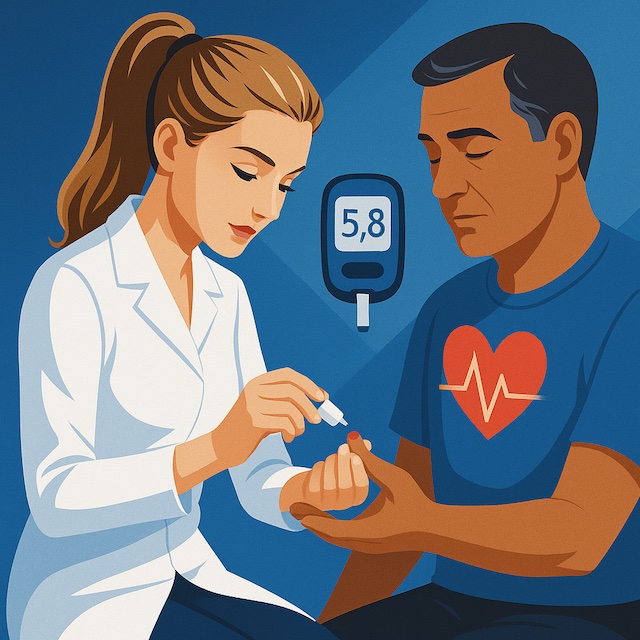Understanding Diabetes Mellitus | What you need to know
Diabetes Mellitus is a chronic disease that affects the way your body processes glucose (blood sugar). Diabetes is a chronic condition that affects how the body processes blood sugar (glucose).
Diabetes can be classified into three types:
- Type I Diabetes: A condition in which the immune system attacks the insulin-producing pancreatic cells. It is usually diagnosed in childhood or young adulthood, and requires insulin therapy for life.
- Type 2 diabetes: The commonest type of diabetes, in which the body is resistant to insulin and/or does not produce enough. It is often related to lifestyle factors like diet, weight and physical activity.
- Gestational diabetes: Temporary form of diabetes which occurs during pregnancy. It increases the risk for Type 2 diabetes in later life.
Common Diagnosis of Diabetes
Some people have diabetes without even realizing it. Early detection of diabetes symptoms can be a game changer:
- Urination is frequent, particularly at night
- Extreme thirst and hunger
- Unexpected weight loss
- Fatigue and irritability
- Blurred Vision
- Slow healing wounds
- Numbness or tingling in the fingers and toes
- Infections of the gums, skin or vaginal area
It's vital to visit a doctor if you or someone close to you experiences any of these symptoms.
What causes diabetes?
Type 2 diabetes can be influenced by lifestyle and genetic factors.
- Obesity Increased insulin resistance due to excess weight, particularly around the abdomen.
- Sedentary Lifestyle: An inactive lifestyle can reduce the ability of the body to regulate blood glucose.
- Poor diet: Consuming processed foods, sugary beverages, and unhealthy fats increases the risk.
- Family history: A close relative who has diabetes increases your chances of getting it.
- Age: As you age, the risk of Type 2 Diabetes increases.
- High blood pressure and cholesterol: These conditions have a close relationship with insulin resistance and diabetes.
Diabetes: Managing and treating diabetes
Diabetes can be a chronic condition that can last a lifetime. However, with proper management you can live a healthy and full life.
Lifestyle changes
- Healthy eating: Focused on whole foods, healthy fats and carbohydrates rich in fiber. Avoid sugary and processed foods.
- Exercise regularly: Regular physical activity improves insulin sensitivity and helps regulate blood glucose levels.
- Weight Control: Maintaining an ideal weight can reduce the risk of complications.
- Blood Sugar Monitor: Tracking blood sugar levels can help you adjust your diet, exercise and medications as necessary.
Insulin Therapy and Medications
- Oral Medications Metformin, for Type 2 diabetes patients, helps regulate blood sugar.
- Insulin therapy: essential for Type 1 diabetes, and sometimes advanced Type 2 diabetes.
- Other Medicines: Certain drugs can help the body to produce more insulin, or use it better.
Avoiding Complications
Diabetes can increase the risk of developing other health issues, including heart disease, kidney problems, nerve damage and vision loss. A healthy lifestyle and regular checkups can help to prevent complications.



